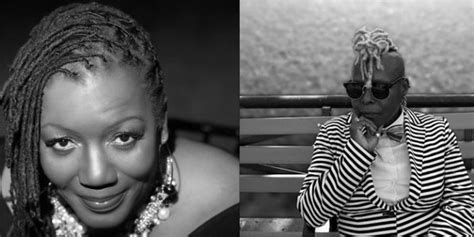A Quote by Jonathan Kozol
I encourage teachers to speak in their own voices. Don't use the gibberish of the standards writers.
Related Quotes
If no one speaks out for [young readers], if they don’t speak out for themselves, all they’ll get for required reading will be the most bland books available. Instead of finding the information they need at the library, instead of finding novels that illuminate life, they will find only those materials to which nobody could possibly object... In this age of censorship I mourn the loss of books that will never be written, I mourn the voices that will be silenced — writers’ voices, teachers’ voices, students’ voices — and all because of fear.
When we speak of ordinary unqualified knowledge, my thought is that we are implicitly relativizing to the standards imposed by our evolution-derived humanity. These are standards that determine when we consider it appropriate to store beliefs just as a human being, rather than in one's capacity as an expert of one or another sort. Such stored beliefs are to be available for later use in one's own thought or in testimony to others.
I now understand what Nelle Morton meant when she said that one of the great tasks in our time is to "hear people to speech." Behind their fearful silence, our students want to find their voices, speak their voices, have their voices heard. A good teacher is one who can listen to those voices even before they are spoken-so that someday they can speak with truth and confidence.
In company with people of your own trade you ordinarily speak of other writers' books. The better the writers the less they will speak about what they have written themselves. Joyce was a very great writer and he would only explain what he was doing to jerks. Other writers that he respected were supposed to be able to know what he was doing by reading it.
You speak baby gibberish?' asked Jack. 'Fluently. The adult-education center ran a course, and I have a lot of time on my hands.' 'So what did he say?' 'I don't know.' 'I thought you said you spoke gibberish?' 'I do. But your baby doesn't. I think he's speaking either pre-toddler nonsense, a form of infact burble or an obscure dialect of gobbledygook. In any event, I can't understand a word he's saying.' 'Oh.
I try to write each piece in the language of the piece, so that I'm not using the same language from piece to piece. I may be using ten or twenty languages. That multiplicity of language and the use of words is African in tradition. And black writers have definitely taken that up and taken it in. It's like speaking in tongues. It may sound like gibberish to somebody, but you know it's a tongue of some kind. Black people have this. We have the ability as a race to speak in tongues, to dream in tongues, to love in tongues.





































